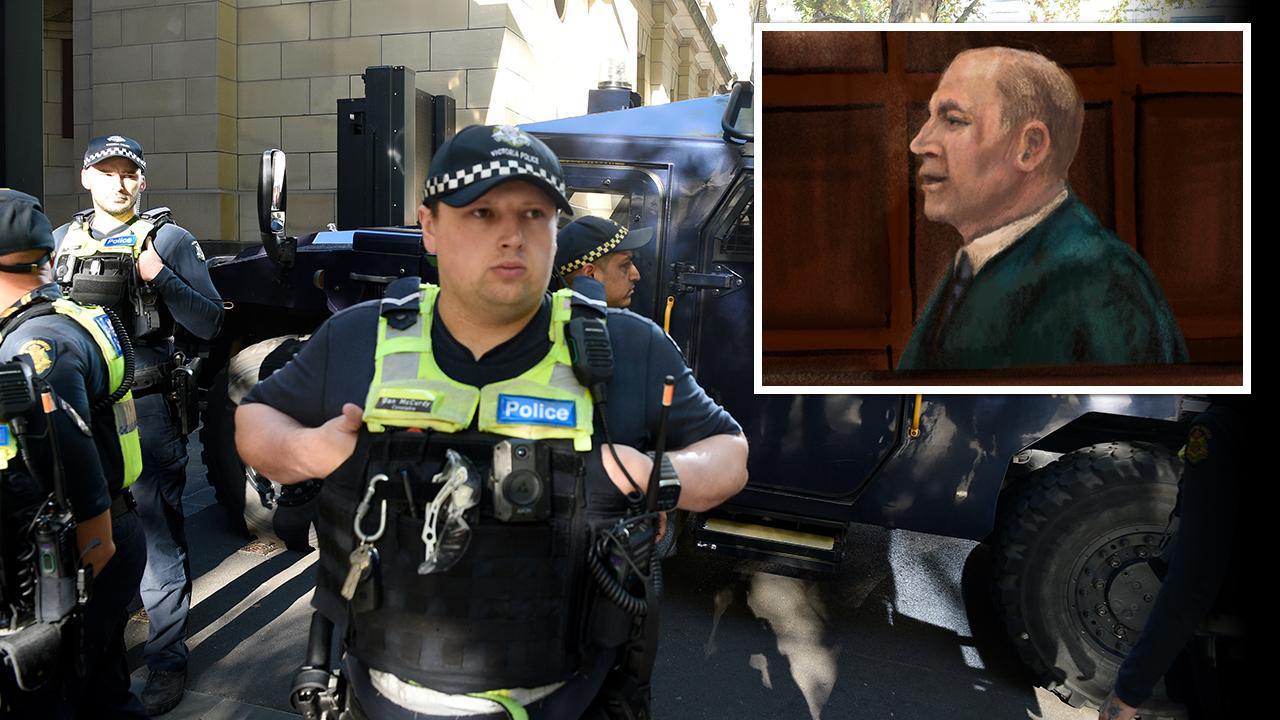‘They’ve got pictures of me in every f**king cop shop in NSW’
Overseas and on the run from police, notorious crime lord Bassam Hamzy heard two women in Lebanon had been gossiping about him so he ordered a younger relative to retaliate on their brother back home. “I want you to go and kick the f**k out of him,” he said. EXCLUSIVE MULTIMEDIA REPORT.
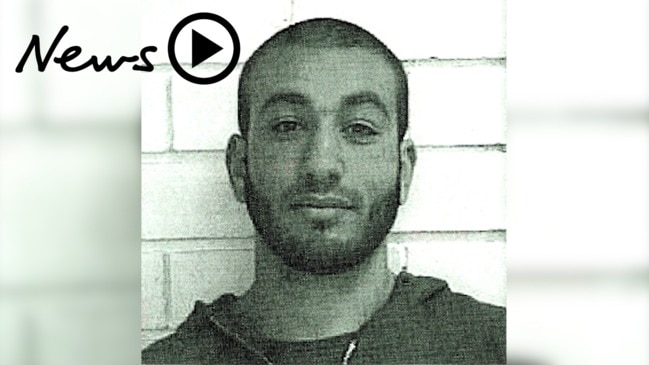
- Part 1: How Hamzy began two decade reign of terror
- Part 1: Hamzy to mum: ‘Did you send me some undies?’
- Part 2: What Hamzy’s handwriting says about him
In part two of our four-part special on the influence of Bassam Hamzy, we detail his masterminding of cocaine shipments to Australia while on the run in the Central American country of Belize. We also reveal how he consulted with a Muslim cleric in Lebanon about having a former friend killed.
Life on a farm was not for Bassam Hamzy.
The quiet was unsettling, the lack of activity boring.
But his mother had told him to lay low for a few months in Belize, a nation on the east coast of Central America, where his wealthy uncle lived.
“Try for as long as you can to stay away,” Lola Hamzy told her son in an intercepted phone call.
“I’m telling you that all those whom you had considered friends are now turning around and want to blame it on you.”
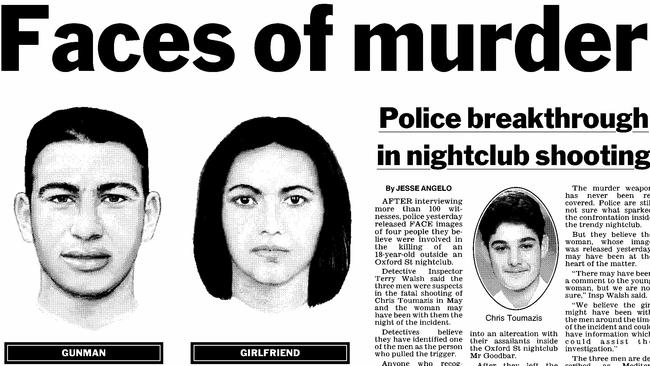
The conversations — which were tendered to the court — are today revealed for the first time after The Sunday Telegraph was given access to the Hamzy files.
EXPLOSIVE TRANSCRIPTS: ‘I want you to go and kick the f**k out of him’
A storm was brewing back in Hamzy’s home city of Sydney after he shot dead an 18-year-old stranger, Kris Toumazis, outside a nightclub in the early hours of May 30, 1998.
Detectives had been to Hamzy’s house, trying to glean useful information about his whereabouts from his family, and a sketch of his face was plastered over the Australia’s Most Wanted TV show.
“They’ve got pictures of me in every f**kin’ cop shop in New South Wales,” Hamzy told his sister Mejida in a call in November, 1998.
After a few months spent on the run in Lebanon, Hamzy crossed the Atlantic Ocean to Belize on September 5, 1998.
The heat was well and truly on him but Hamzy was up to old tricks again, unable to resist the pull of the criminal underworld.
He was on the phone constantly, ordering his brothers to bash people for speaking ill of him and to collect money owed to him and his father.
He’d even recruited men to courier cocaine between Belize and Australia by shoving the drugs in their shoes and putting them on international flights.
By monitoring Hamzy’s phone calls, detectives in Australia had cottoned on to his plan to travel to Belize via Miami from Lebanon and later to Colombia.
They suspected he’d seen an opportunity to import cocaine into Australia’s lucrative drug market.
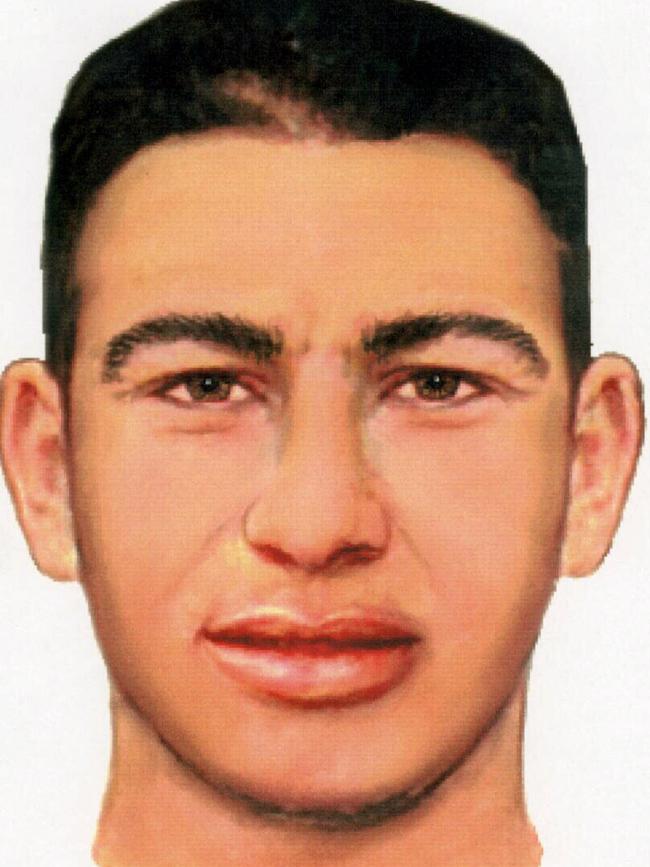
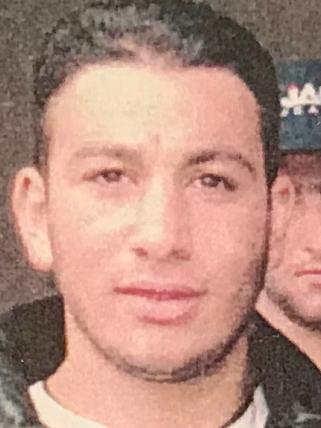
The last thing he should’ve been doing was attracting attention but it seemed Hamzy couldn’t help himself.
Between October and December 1998, police listened to Hamzy and another man Nathan Arthur Keys — his second in charge in the drug operation — discuss smuggling cocaine from United States to Australia.
At Hamzy’s direction, Keys organised two couriers, researched routes between Belize and Australia and bought the “boat shoes” to stuff the cocaine in and the plane tickets.
Keys made the trip to Belize himself in the interests of research and to meet with Hamzy.
Keys was later convicted and sentenced to at least five years behind bars.
Unbeknown to him, police had a heads up about their couriers thanks to the intercepts on Hamzy’s phone calls.
On December 29, 1998, Hussain “Sam” Danine was arrested after stepping off a flight from Los Angeles with 772.6 grams of cocaine in his shoes.
A month later another courier, Richard Layoun, was arrested at Brisbane International Airport, wearing similar shoes with 713.6 grams of cocaine.
Both Danine and Layoun pleaded guilty to one charge of importation and each were sentenced to six years in jail.
Hamzy may have been on the other side of the world but he was still making his presence known back home.
After hearing two women in Lebanon had been gossiping about him, he ordered a younger relative to retaliate.
“Hey listen, there’s a bloke all right …” Hamzy said during a phone call on August 21, 1998.
“He works across the road from … I think it’s the tyre place. His name is Hussein. He’s about nineteen or twenty-years-old.
“I want you to go and kick the f**k out of him.”
The relative said he’d do it but not at the tyre shop.
“Kick the f**k out of him and tell him, this what you tell him,” Hamzy ordered.
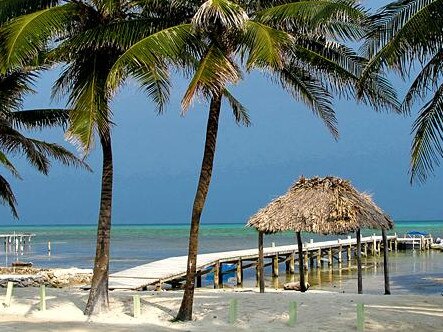
“Tell him you in Lebanon.”
You know who I’m talking about?”
Relative: “Yeah I know.”
Hamzy: “He’s got two sisters here in Lebanon and they’ve been talking.”
In another phone call, one of Hamzy’s young relatives reported a “Greek guy” getting smashed because he owed their father $1000.
Hamzy’s mother at one point was given instructions to collect money from a Chinese man and pass it on to someone else.
All were examples of the control Hamzy had on his family, a unit which ironically created an environment where criminal behaviour was condoned.
As a psychologist would later describe, Hamzy’s lack of support and guidance in his teenage years may have taught him to mistrust others, “to be competitive, hard-headed and callous in order to survive”.
After learning Nedhal Hammoud, a friend who was with him on the night of Mr Toumazis’s shooting, had betrayed him and was helping police, he toyed with the idea of killing him.
Hammoud was sentenced to at least six years jail for being an accessory after the fact to murder and a string of unrelated drug offences.
“I’ve already talked to a sheikh in Lebanon,” Hamzy told his sister Mejida.
“I’ve already talked to the Sheiks about killing Ned.”
But even his own siblings were beginning to question how Hamzy — who became a devout Muslim in jail — could justify the crime.
“Bassam, but did you know in the Koran it says only Allah, the compassionate, the merciful, can take a life?” Mejida asked.
Hamzy: “Yeah but Allah says you defend yourself.
Mejida: “Yeah but not in that way.”
Hamzy: “Yeah … shut up. What do you know? I know more than youse.”
Mejida asked her brother if he was praying.
“Youse don’t worry about me. I’m going straight to heaven.”
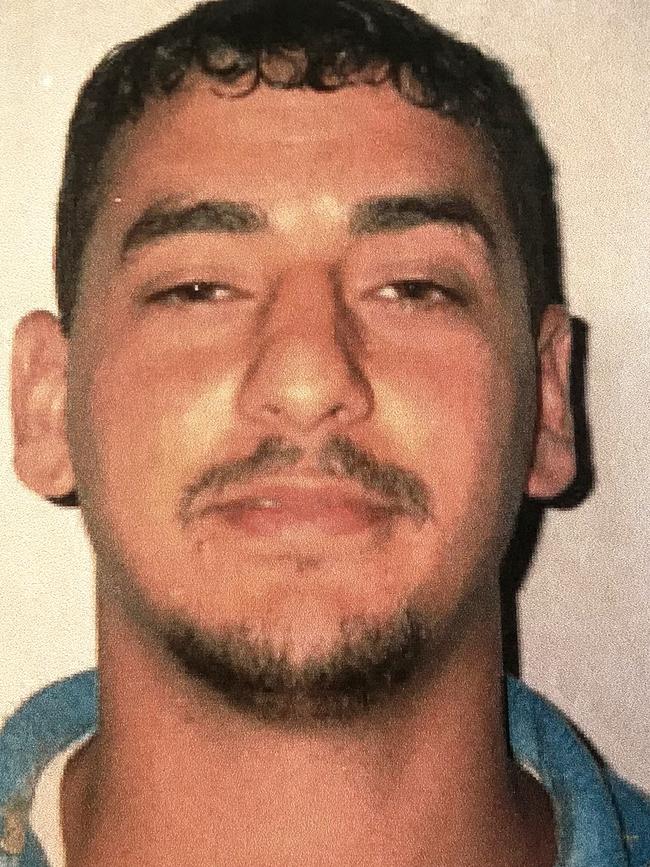
On December 14, 1998, after learning Hamzy was about to travel back to Lebanon and pass through Miami, authorities in Australia sent an urgent request to the Department of Justice in the United States.
An extradition treaty existed between the two counties and Hamzy’s stopover in Florida would be the perfect opportunity to grab him before he slipped away again.
“Bassam HAMZY is a fugitive from justice,” the request from the Commonwealth Attorney-General’s extradition unit stated.
“He is unaware that his extradition is sought by the Australian Government.”
Hamzy was wanted for a string of offences — murder, shooting with intent to murder, attempted murder.
Finally in January, 1999, Hamzy was pinched at Miami International Airport.
He spent three months in a US prison where he concocted his own version of events of what happened outside the Mr Goodbar nightclub eight months earlier.
In a handwritten letter — penned in early 1999 and included in the court files — to consular officer Julie Senia, Hamzy claimed the shooting was a “terrible accident”.
“I didn’t mean for it to happen but it did,” Hamzy wrote in the two page explanation, found at his uncle’s house during a search warrant.
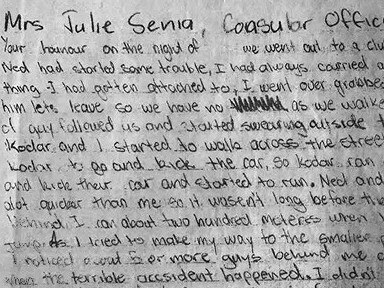
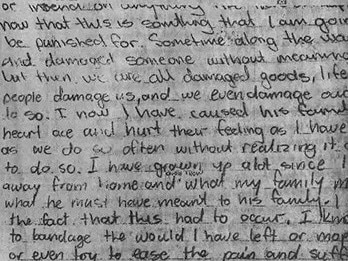
“I feel great sympathy and remorse that anything like this should happen but there were 5 of them and I was alone, alone with a dislocated shoulder.
“I don’t think anyone should take a life that god has given.”
Hamzy claimed he had put himself in the shoes of Mr Toumazis’ family, was remorseful and had trouble sleeping at night.
“I know that I have missed the family and the country that I have lived and grown up in for the last 19 years,” Hamzy wrote.
“I know that this is something that I am going to be punished for something along the way. I have hurt and damaged someone without meaning to do so, but then we are all damaged goods, life damages us, people damage us and we even damage ourselves as I have.”
The attempt at profound wisdom did not win over the judge who eventually sentenced him.
“I am satisfied that those sentiments were merely advanced to suit his own purposes at the time and that in truth, the offender has shown no remorse,” Justice Virginia Bell said.
Hamzy arrived back in Australia on March 30, 1999 and was charged over the Mr Goodbar shooting as well as drug importation offences.
Despite his incarceration, he continued his pursuit to wriggle his way out of the charges.



